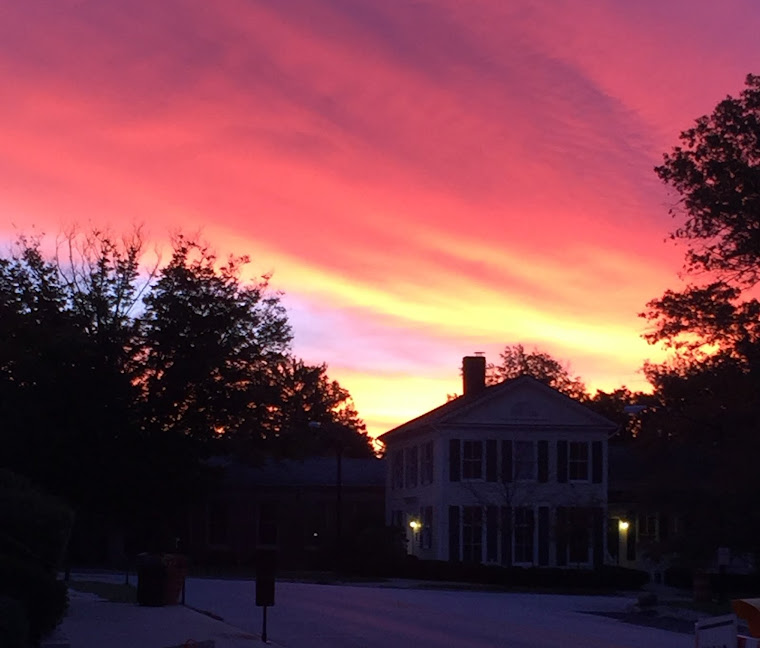And so the orgy began.
It was not long before I was reading mysteries with the insatiable, indiscriminate appetite of a Great White Shark. If a mystery swam in my view, I ate it. And my literary stomach was soon cluttered with the fictional equivalent of license plates, bathing suits, tennis balls, and chunks of once-inflatable rafts.
I've read (in no particular order here) the complete mysteries/thrillers of Lawrence Block--notably, the Matthew Scudder novels. I think I first learned about Scudder in that 1986 film with Jeff Bridges, 8 Million Ways to Die (the first time I remember seeing Andy Garcia, too). Soon I was reading and admiring all the Scudder novels--the ex-cop with a drinking problem--not a licensed P.I. But then I met Block at a signing up at a Cleveland bookstore and was so put off by his manner (he was arrogant and dismissive) that I soured on him--and read his ensuing books more out of habit than passion. I've also read his series about a hit man--John Keller. The last, I think, was Hit and Run, 2008--though a new one, Hit Me, is due in Feb. 2013.
Who else? I've splashed in Sue Grafton's alphabet soup. I started with G Is for Gumshoe and have read all the ones since then; oddly, though, I've not gone back to read A-F ... not sure why? Maybe I'll do it when I've read Z and realize there will be no more?
I actually kind of enjoyed a short series by a Cincinnati writer--Jonathan Valin--who wrote some novels about Harry Stoner back in the 1980s and 1990s. Then vanished. I just looked on Amazon and saw that a new one is coming out soon--to Kindle Direct. Don't know what the story there is.
Who else? I merged my love of the Elizabethans with my detective madness by reading an entire series by Edward Marston. His character--Nicholas Bracewell--works for a theater company but also solves mysteries. There are sixteen in the series--and as I look over the list, I realize I've not read the last few. (Guess what that means!)
One novel by Michael Connelly about his L. A. detective Harry Bosch (actually, it's Hieronymus Bosch--"Harry" for short) has forced me to read all the others--and a new one is out right now: The Black Box. Gotta order it.
My older brother, Richard, got me started on a series about a small-town police chief, Mario Balzic, in Pennsylvania, a series by K. C. Constantine. I ate all those like a weasel eats free eggs.
And the Dennis Lehane novels about the young Boston PIs--Patrick Kenzie and Angela Gennaro. Ben Affleck transformed one of those novels--Gone Baby Gone--into a fine film (starring brother Casey) in 2008. One of the recent novels in the series has a scene in Becket, Massachusetts, a tiny town in the Berkshires where my brothers have an old farmhouse they use as a weekend/summer place. There's something about that, isn't there? Reading in a novel about a place you know very well. Years ago, I remember seeing the film Ordinary People, which has some footage shot in Lake Forest, Illinois, where we had lived and taught for a year. Nothing like that to decorate your skin with horripilation!
Surely there are more?
Why, yes! All those Scandinavians I've been reading lately: Henning Mankell, Jo Nesbø, Stieg Larsson, Camilla Läckberg.
And some more Americans: Ridley Pearson (I like the ones about the Sun Valley cops--all the titles include the word Killer--like Killer Summer), Charles McCarry, Carl Hiaasen, and David Morrell, and ... the list goes on, and I'm getting tired. But ... one more ...
 |
| Elmore Leonard |
Leonard, early in his career, wrote some Westerns--including Hombre and Valdez Is Coming. (Both became films.) One of his short stories, 3:10 to Yuma, has been filmed twice, most recently in 2008 with Russell Crowe and Christian Bale. I liked Leonard's Westerns. Wanted more of them. So I decided I would ask him ...
His line was long. But, of course, I eventually reached him. And popped the question: Are you ever going to write another Western?
He looked up at me. Sighed. No one reads them, he said. And went back to signing books.
Some years later, 1999, he published Cuba Libre, kind of a Western. So I decided it was I who had given him the idea. And I decided I should take a share of the credit.
And so I am.






































